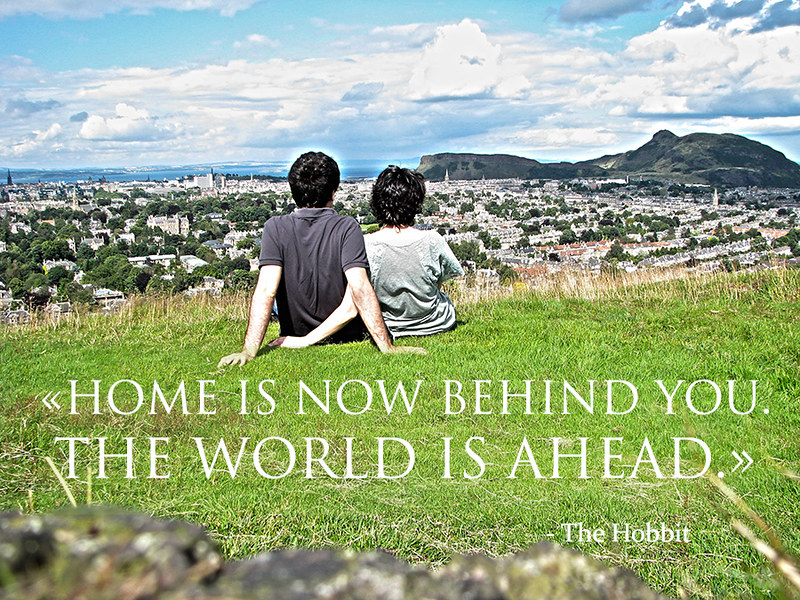
Bilbo Baggins knew all about it. His life changed from mundane to epic because he met an interesting friend. Abraham heard the call to leave Ur of the Chaldees to a land he did not know, but that God would show him. Moses knew about it when he met God at the burning bush (great clip by Dreamworks' https://www.youtube.com/watch?v=g5BQWubuC8g "Prince of Egypt") and became God's mouthpiece to confront Pharaoh and call Israel out of Egypt (depicted in the "The Ten Commandments" starring Charlton Heston https://www.youtube.com/watch?v=ahkwQhQZWG8).
World travelers, Bilbo Baggins, Abraham, Moses and the People of God all experienced the epic, where their little stories were transformed into the greater story and explanation of all things. Another way of stating this is that they felt called to live by a radically alternative vision of reality. Whether one gets there through geographically external ways, or by gaining new habits of mind to transform thinking, life can be a precarious business when you venture out your front door! Traveling to new countries in the seen or unseen will forever change our perception of reality, and this is what an unveiling or epiphany is all about.
Turning to the great apocalypse of the Revelation of Jesus Christ and Darryl Johnson's (2004) commentary, "Discipleship on the Edge" helps one focus his or her vision on the journey out of the kingdom of this world into the Kingdom of Heaven:
"The Lamb's people know they are not their own anymore. They know they are an offering, a living sacrifice. They know they are engaged to the Lamb, and will do everything they can to remain loyal. The want to be like the Lamb, full of light and integrity. They follow the Lamb wherever He goes. They win the victory over the beast by not fearing the beast. And they are known by the song they sing" (p. 278).
This is the Song of Moses and the Lamb, which begins, "Great and marvelous are Your works oh Lord God Almighty!" So when you are being nudged and directed to leave comfort and familiarity for an adventure to a new land or place of being, don't resist. Follow the call and allow faith in the promises of God to transport you, putting your toes in the Red Sea and being ready to watch God act.